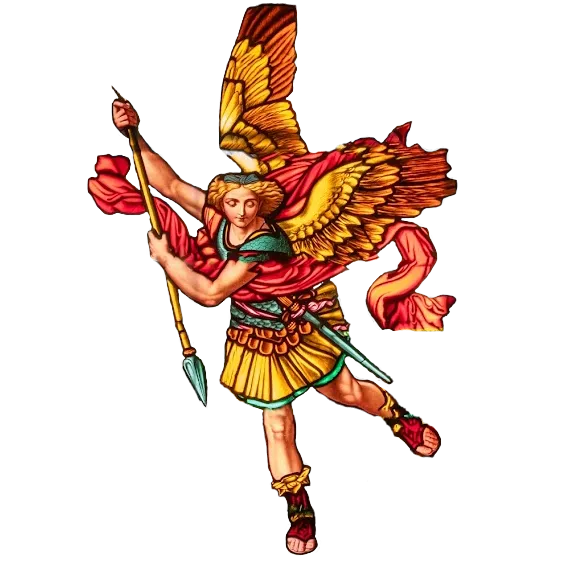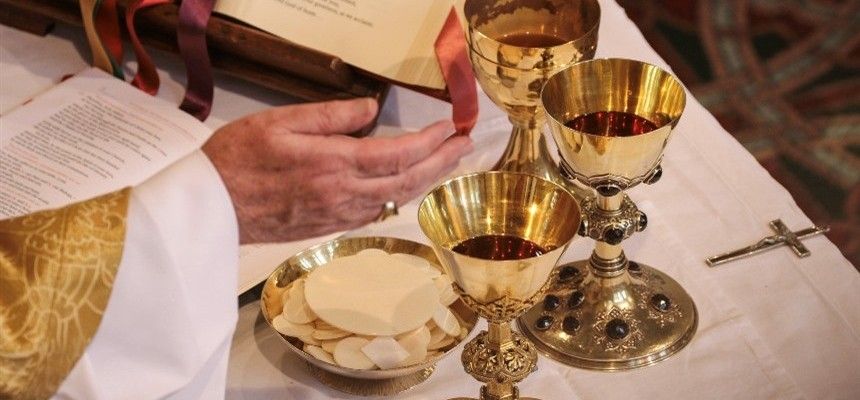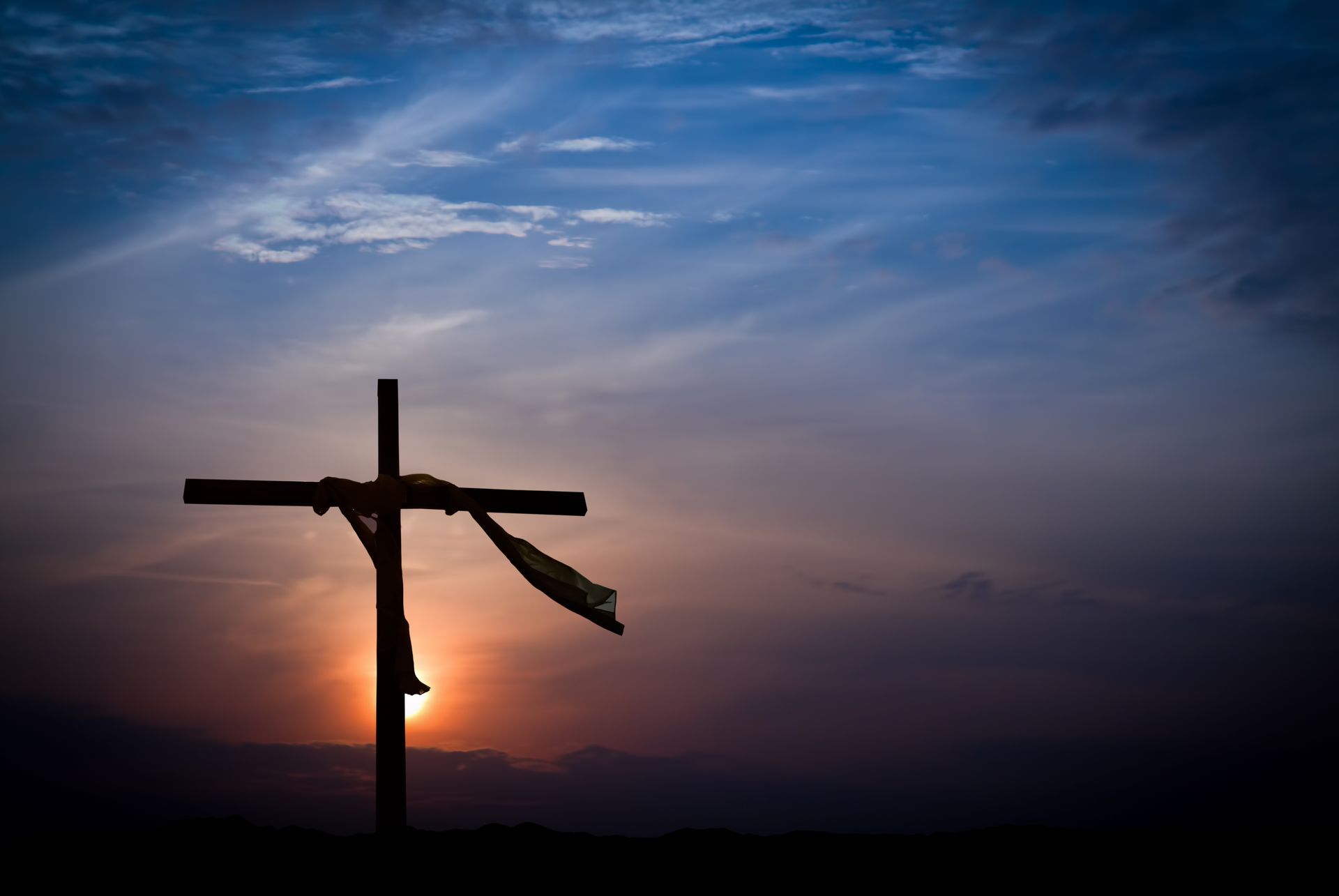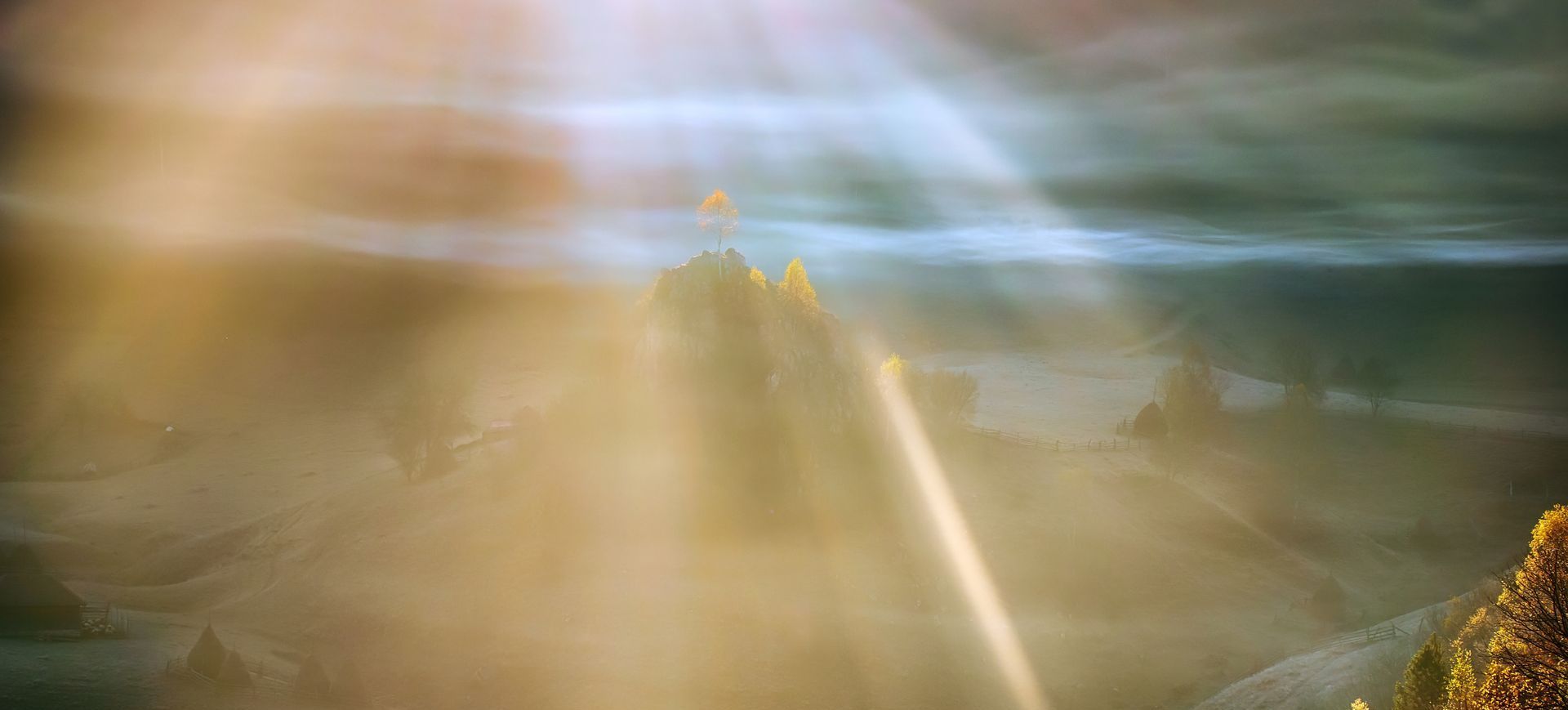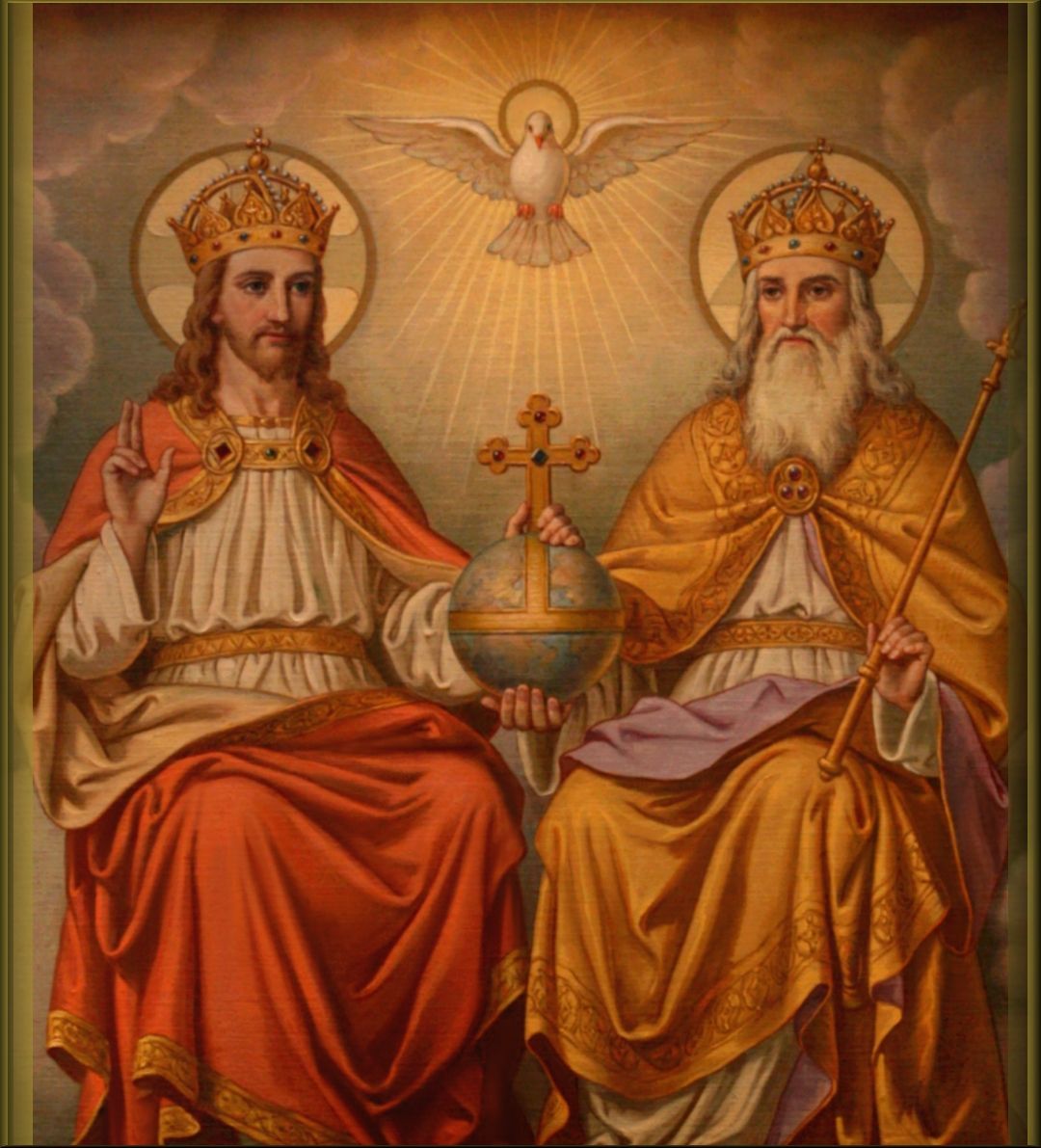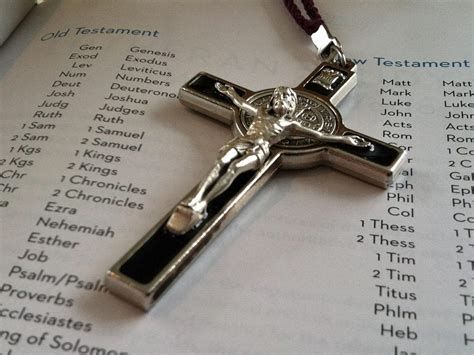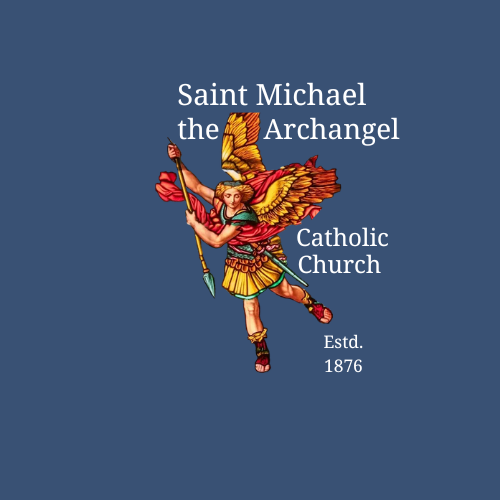Christ: True God and True Man
In the beginning was the Word, and the Word was with God, and the Word was God. (John 1: 1)
Who is Jesus Christ?
If we want to know Jesus, we should know the Scripture. This is certainly true about the Gospels of Matthew, Mark, Luke, and John, which were written “that you may [come to] believe that Jesus is the Messiah, the Son of God, and that through this belief you may have life in his name” (John 20:31).
We ponder Christ’s person and his earthly words and deeds in terms of mystery. His earthly life reveals his hidden divine Sonship and plan for our salvation. His parables, miracles, sermons, and wisdom sayings help us “to see our God made visible, and so we are caught up in love of the God we cannot see”.
The Gospels tell us a lot of what we know about Jesus. In two of the Gospels, we hear of his birth in the town of Bethlehem, to a young virgin named Mary. None of the Gospels tell much of the first thirty years of his life. We know he lived in the town of Nazareth with his mother and foster father, Saint Joseph, and that he learned to be a carpenter like his foster father. The Gospels concentrate mostly on the events of his public life or ministry, which began when he was around the age of thirty. Jesus spent the last three years of his life traveling around the lands of ancient Israel, teaching the people of the Kingdom of God and confirming his identity as the Son of God through the miracles and wonders he performed. He gathered around him many disciples from whom he selected twelve who became the Apostles.
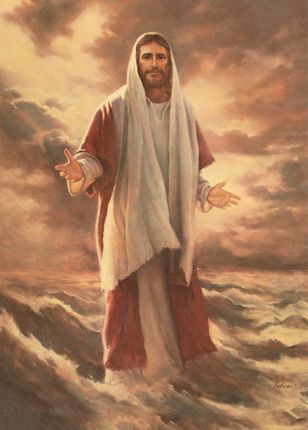
In the Gospels, we see and hear Jesus summon others to accept, live, and share the Kingdom of God. The proclamation of the Kingdom of God was fundamental to Jesus’ preaching. The Kingdom of God is his presence among human beings calling them to a new way of life as individuals and as a community. This is a Kingdom of salvation from sin and a sharing in divine life. It is the Good News that results in love, justice, and mercy for the whole world. The Kingdom is realized partially on earth and permanently in heaven. We enter this Kingdom through faith in Christ, baptismal initiation into the Church, and life in communion with all her members.
The words of Jesus, expressed in his parables, the
Sermon on the Mount, his dialogues, and the
Last Supper discourse are calls to holiness through accepting his Kingdom and salvation. Jesus did not abolish the Law of Sinai, but rather fulfilled it (cf. Matthew 5:17-19) with such perfection (cf. John 8:46) that he revealed its ultimate meaning (cf. Matthew 5:23) and redeemed the transgressions against it (cf. Hebrews 9:15). The miracles and other deeds of Jesus are acts of compassion and signs of the Kingdom and
salvation.
-United States Catholic Catechism for Adults
Jesus Christ is the same yesterday, today, and forever.
Hebrews 13:8
What is the meaning of the name "Jesus"?
Given by the angel at the time of the Annunciation, the name "Jesus" means "God saves." The name expresses his identity and his mission "because he will save his people from their sins" (Matthew 1:21). Peter proclaimed that "there is no other name under heaven given among men by which we must be saved" (Acts of the Apostles 4:12)
Why is Jesus called "Christ"?
"Christ" in Greek, "Messiah" in Hebrew, means the "anointed one." Jesus is the Christ because he is consecrated by God and anointed by the Holy Spirit for his redeeming mission. He is the Messiah awaited by Israel, sent into the world by the Father. Jesus accepted the title of Messiah but he made the meaning of the term clear: "come down from heaven" (John 3:13), crucified and then risen, he is the Suffering Servant who gives "his life as a ransom for many" (Matthew 20:28). From the name Christ comes our name of Christian.
What is the meaning of the title "Lord"?
In the Bible this title regularly designates God as Sovereign. Jesus ascribed this title to himself and revealed his divine sovereignty by his power over nature, over demons, over sin, and over death, above all by his own Resurrection.
The first Christian creeds proclaimed that the power, the honor, and the glory that are due to God the Father also belong to Jesus: God "has given him the name which is above every other name" (Philippians 2:9). He is the Lord of the world and of history, the only One to whom we must completely submit our personal freedom.
-Compendium, Catechism of the Catholic Church
How is Jesus Christ both fully God and fully man?
God reveals himself to us through the natural law, through his creation, through his Word, and through the Holy Spirit. Jesus Christ represents the fullness of Divine Revelation.
In the beginning was the Word, / and the Word was with God, / and the Word was God. / He was in the beginning with God. / All things came to be through him, / and without him nothing came to be...And the Word became flesh / and made his dwelling among us, / and we saw his glory, I the glory as of the Father's only Son, / full of grace and truth.
John 1:1-3,14
Have among yourselves the same attitude that is also yours in Christ Jesus, / Who, though he was in the form of God, / did not regard equality with God something to be grasped. / Rather, he emptied himself, / taking the form of a slave, / coming in human likeness; / and found human in appearance, / he humbled himself, / becoming obedient to death, / even death on a cross.
Philippians 2:5-8
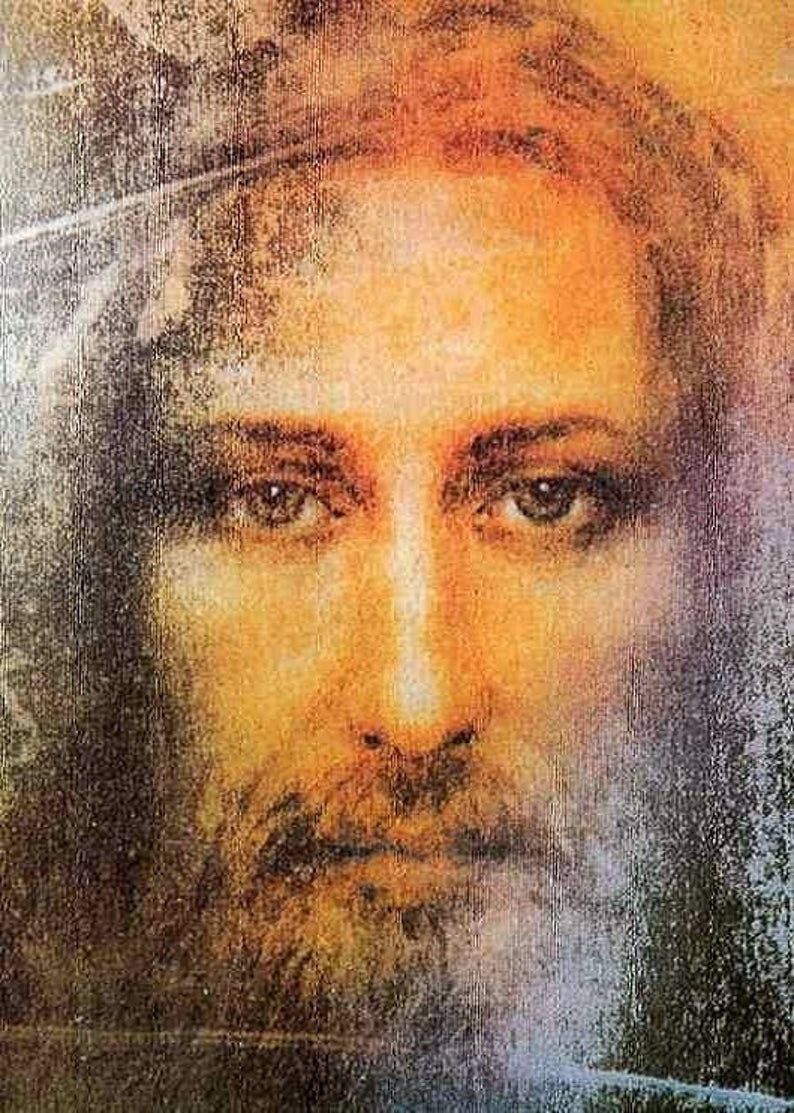
This belief in Jesus Christ as the Son of God is the very foundation of Christianity, and it is a teaching found throughout the New Testament. In the prologue of his Gospel, Saint John emphasized that Christ is the consubstantial Son of the Father. (Consubstantial comes from a Latin word meaning "of one and the same substance.") He did this by describing Christ as the Word (in Greek, Logos) who has existed for all eternity and who is a Person coexistent with God, for he is God himself (John 1:1). (Cf. CCC 251-252)
As the Only-Begotten Son of God, Jesus Christ possesses the divine nature of His Father and is eternal. As the Son of the Blessed Virgin Mary, he took on, or assumed, the human nature in the Incarnation; this is the same human nature, inherited from Adam and Eve, that we all share. This union of human and divine natures—without mixing the two or confusing either one—in the one Person of Jesus Christ is called the hypostatic union. Through the power of God, the Holy Spirit, God the Son, took on a human body and soul in the womb of his Mother. (Cf. CCC 470-471)
As perfect man and perfect God, Christ has both a human intellect and will and a divine intellect and will. Yet, his human will and intellect is united to his divine will and intellect such that he is completely obedient to his divine will and therefore "like us in all things but sin" (Eucharistic Prayer IV). (Cf. CCC 472-475)
In the early centuries of Christianity, various heresies doubted Christ's full humanity or full divinity. Through several Ecumenical Councils, the Magisterium refuted these heresies to confirm the understanding of Christ that we continue to possess today. (Cf. CCC 465-468, 471)
The Catechism of the Catholic Church, paragraph 464 addresses this question.
-The Didache Bible
"But who do you say that I am?" (Matthew 16: 15)
What were some heresies in the early Church concerning Christ?
[Jesus] asked his disciples, "Who do people say that the Son of Man is?" They replied, "Some say John the Baptist, others Elijah, still others Jeremiah or one of the prophets." He said to them, "But who do you say that I am?" Simon Peter said in reply, "You are the Messiah, the Son of the living God.' (Matthew 16:13-16)
In the early centuries of Christianity, as the Church wrestled with fully underi standing the identity of Christ, the Magisterium had to confront a number af heresies that challenged Christ's humanity and divinity. The Church teaches as a matter of dogma that Christ is true God and true man, but it took centuries for the Magisterium to formulate this teaching in theological language. Several false teachings, or heresies, arose that created confusion and required an official response. (Cf. CCC 464)
Among the early heresies were the following:
- Docetism claimed that Christ was pure spirit and that his physical body was an illusion. They held that Christ did not truly die on the Cross but merely the illusion of his body. The Catholic Church has always taught that Christ "was incarnate of the Virgin Mary, / and became man" (Nicene Creed) and that "Christ's death was a real death" (CCC 627).
- Arianism claimed that Jesus was a highly exalted creation of God the Father, but not eternal or consubstantial with the Father. The First Ecumenical Council of Nicsea (AD 325) affirmed in response that Christ was "begotten, not made consubstantial with the Father" (Nicene Creed), i.e., of the same substance, or nature, or essence, as the Father. (Cf. CCC 465)
- Nestorianism taught that Christ's human nature was loosely joined to the divine nature of the Son of God. The Ecumenical Council of Ephesus (AD 431) refuted this by clarifying that Christ possesses two natures, human and divine, and that these natures were fully united in his divine Person from his conception in whs: we call the hypostatic union. (Cf. CCC 466)
- Monophysitism taught that Christ's humanity was absorbed into his divinity, leaving him with either a divine nature alone or some new mixture of mostly divii*e and a small part human nature. The Ecumenical Council of Chalcedon rebutte: this heresy (AD 451); later, the Second Ecumenical Council of Constantinople (AD 553) made further clarifications to the teaching. (Cf. CCC 467-468)
The Catechism of the Catholic Church, paragraph 464 addresses this question.
-The Didache Bible
The Sermon on the Mount
The Sermon on the Mount is recorded in the Gospel of Matthew chapters 5, 6 and 7 of Sacred Scripture. Jesus delivered this message near the beginning of His ministry and it is the longest of Jesus' sermons recorded in the New Testament.
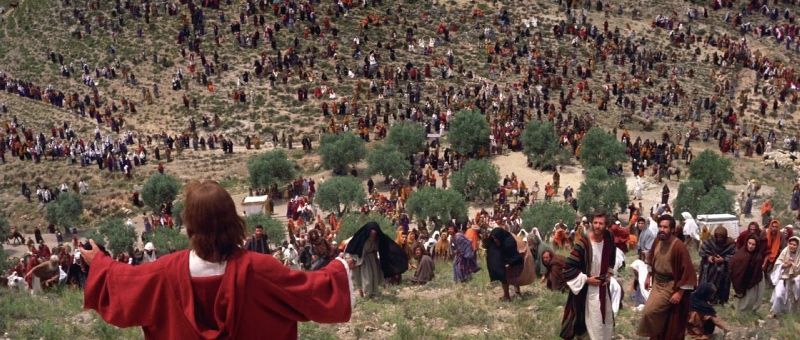
The Sermon on the Mount is by far Jesus' longest explanation of what it looks like to live as His follower and to serve as a member of God's Kingdom. In many ways, Jesus' teachings during the Sermon on the Mount represent the major ideals of the Christian life.
For example, Jesus taught about subjects such as prayer, justice, care for the needy, handling the religious law, divorce, fasting, judging other people, salvation, and much more. The Sermon on the Mount also contains both the Beatitudes ( Matthew 5:3-12 )and the Lord's Prayer ( Matthew 6:9-13 ).
Jesus' words are practical and concise; He was truly a master orator. In the end, Jesus made it clear that His followers should live in a noticeably different way than other people because His followers should hold to a much higher standard of conduct -- the standard of love and selflessness that Jesus Himself would embody when He died on the cross for our sins.
-O'Neal, Sam. "The Sermon on the Mount: A Brief Overview." Learn Religions, Aug. 25, 2020
In the great opening verses (called the Beatitudes) of the Sermon on the Mount, Jesus lays out, in short order, his ethical and spiritual program. It turns all of our customary expectations and prejudices upside down.
To be “happy”, fulfilled, we must empty the self, become meek, learn how to sorrow, hunger not for egotistic satisfaction but for justice, work for peace, and become the objects of persecution.
...Strange, puzzling, unnerving, counter-intuitive–and the key to joy.
-Bishop Robert Barron
The following Scripture passages are excerpts from the Sermon on the Mount
He began to teach them, saying: “Blessed are the poor in spirit, for theirs is the kingdom of heaven. Blessed are they who mourn, for they will be comforted. Blessed are the meek, for they will inherit the land. Blessed are they who hunger and thirst for righteousness, for they will be satisfied. Blessed are the merciful, for they will be shown mercy. Blessed are the clean of heart, for they will see God. Blessed are the peacemakers, for they will be called children of God. Blessed are they who are persecuted for the sake of righteousness, for theirs is the kingdom of heaven. Blessed are you when they insult you and persecute you and utter every kind of evil against you [falsely] because of me. Rejoice and be glad, for your reward will be great in heaven. Thus they persecuted the prophets who were before you."
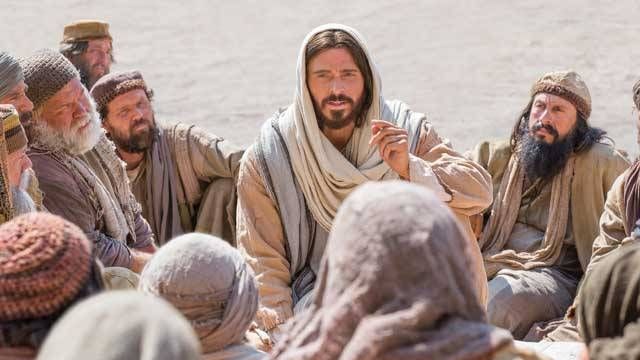
You are the light of the world. A city set on a mountain cannot be hidden. Nor do they light a lamp and then put it under a bushel basket; it is set on a lampstand, where it gives light to all in the house. Just so, your light must shine before others, that they may see your good deeds and glorify your heavenly Father."
You have heard that it was said, ‘You shall love your neighbor and hate your enemy.’ But I say to you, love your enemies, and pray for those who persecute you, that you may be children of your heavenly Father, for he makes his sun rise on the bad and the good, and causes rain to fall on the just and the unjust..."
This is how you are to pray: Our Father in heaven, hallowed be your name, your kingdom come, your will be done, on earth as in heaven. Give us today our daily bread; and forgive us our debts, as we forgive our debtors; and do not subject us to the final test, but deliver us from the evil one. If you forgive others their transgressions, your heavenly Father will forgive you. But if you do not forgive others, neither will your Father forgive your transgressions."
Matthew 6: 9-13
“Do not store up for yourselves treasures on earth, where moth and decay destroy, and thieves break in and steal. But store up treasures in heaven, where neither moth nor decay destroys, nor thieves break in and steal. For where your treasure is, there also will your heart be."
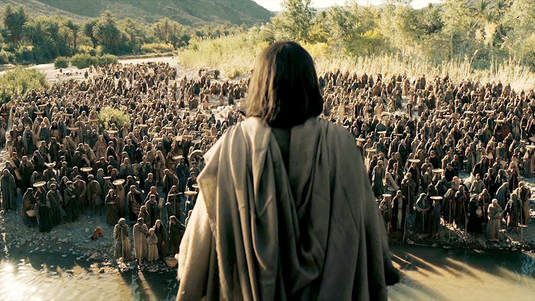
“Ask and it will be given to you; seek and you will find; knock and the door will be opened to you. For everyone who asks, receives; and the one who seeks, finds; and to the one who knocks, the door will be opened."
“Everyone who listens to these words of mine and acts on them will be like a wise man who built his house on rock. The rain fell, the floods came, and the winds blew and buffeted the house. But it did not collapse; it had been set solidly on rock. And everyone who listens to these words of mine but does not act on them will be like a fool who built his house on sand. The rain fell, the floods came, and the winds blew and buffeted the house. And it collapsed and was completely ruined.”
Matthew 7: 24-27
When Jesus finished these words, the crowds were astonished at his teaching, for he taught them as one having authority, and not as their scribes.
Matthew 7: 28-29
How is Christ truly present in the Eucharist?
The Church teaches that Jesus Christ is truly, really, and substantially present—in his Body, Blood, Soul, and Divinity—in the Eucharist. The bread and wine consecrated by the bishop or priest in the Liturgy of the Eucharist become the Body and Blood of Christ.
Jesus said to [the Jews], "Amen, amen, I say to you, unless you eat the flesh of the Son of Man and drink his blood, you do not have life within you. Whoever eats my flesh and drinks my blood has eternal life.... For my flesh is true food, and my blood is true drink."
[Jesus] took the bread, said the blessing, broke it, and gave it to them, saying, "This is my body, which will be given for you; do this in memory of me."
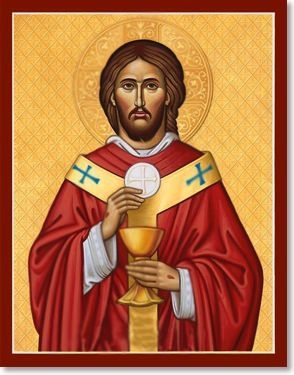
The Church has always recognized Christ's Real Presence in the Eucharist. Christ's words in instituting this Sacrament at the Last Supper were unequivocal: "This is my body.... This cup is the new covenant in my blood" (Luke 22:19-20). In the Eucharist "the body and blood, together with the soul and divinity, of our Lord Jesus Christ and, therefore, the whole Christ is truly, really, and substantially contained" (Council of Trent [1551]: DS 1651). Saint Paul condemns the unworthy reception of the Eucharist as a profanation of the very Body and Blood of Christ (cf. 1 Corinthians 11:27-29). Already in the fourth century, Saint Cyril of Jerusalem exhorted, "Do not see in the bread and wine merely natural elements, because the Lord has expressly said that they are his Body and his Blood: faith assures you of this, though your senses suggest otherwise." (Cf. CCC 1373,1375)
This change in the Eucharistic species in which the substance of the bread end wine become the Body and Blood of Christ is called transubstantiation. It occurs at the consecration during the Mass, when the bishop or priest pronounces the words of consecration over the bread and wine as Christ commanded. (Cf. CCC 1376-1377,1411-1413)
In the Eucharist, Christ remains truly and totally present under the appearances of bread and wine. He offers his Body and Blood to us in Holy Communion to be nourished by his divine life. The Eucharist is, therefore, not merely a symbol of Christ's presence but also the active presence of Christ himself, who gives himself to us unconditionally so our lives might be united to his intimately. The Eucharist is "the perfection of the spiritual life and the end to which all the sacraments tend" (STh III, 73, 3c). (Cf. CCC 1323-1325)
The Catechism of the Catholic Church, paragraphs 1360 and 1374 addresses this question.
-The Didache Bible,
page 1810
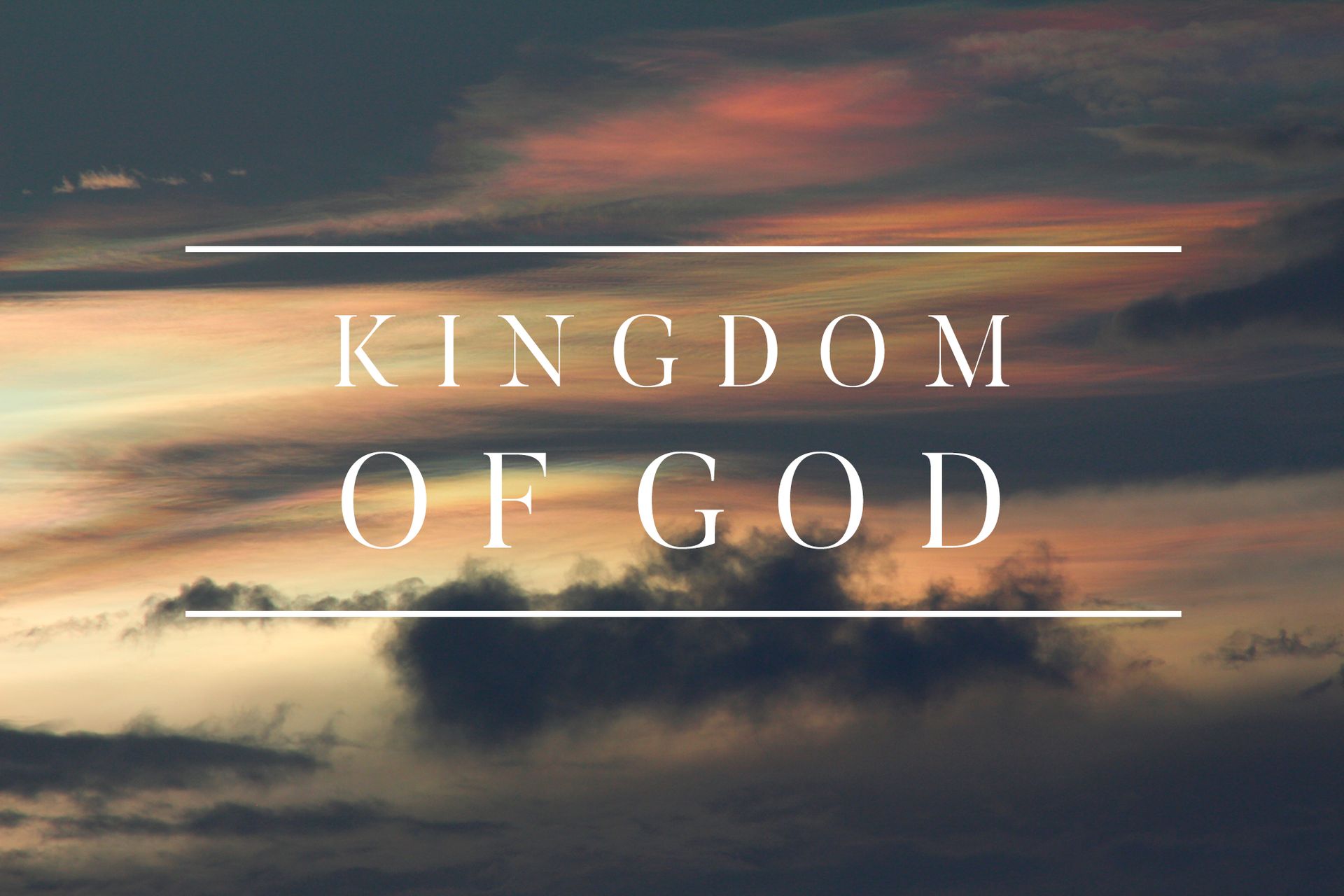
Who is invited to come into the Kingdom of God proclaimed and brought about by Jesus?
All are invited by Jesus to enter the Kingdom of God. Even the worst of sinners is called to convert and to accept the boundless mercy of the Father. Already here on earth, the Kingdom belongs to those who accept it with a humble heart. To them the mysteries of the Kingdom are revealed.
-Compendium, Catechism of the Catholic Church
Resurrection of Jesus Christ
The Resurrection is the climax of the Incarnation. It confirms the divinity of Christ and all things which he did and taught.



